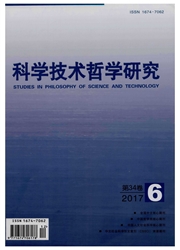

 中文摘要:
中文摘要:
在传统知识论那里,信念的辩护一直处于核心地位。然而,基础信念的倒退似乎排除了我们具有任何知识的可能性。取消信念的辩护而诉诸知识与事实之间的因果关系,可以成功地避免倒退问题和葛梯尔反例,但它将使我们陷入非理性的境地。导致这一两难困境的原因在于知识论所蕴含的"信念假设",即一个认知者的信念的可辩护性仅仅是由他所持的信念决定的。事实上,所谓的基本信念并不基于自我辩护,而是由其他非信念的内在状态来予以辩护的。之所以能够提供这种辩护,是因为非信念的内在状态是我们"可直接访问的"东西。尽管如此,由于认知主体本身使得知识成为有存在意义的东西,因而我们的所知仍然无法摆脱我们的信念。
 英文摘要:
英文摘要:
Traditionally justification has been at the core of the theory of knowledge. However,the regression-based beliefs seem to exclude the possibility that we have any knowledge. Resorting to the causal relationship between knowledge and fact instead of justification can successfully avoid the retrogression problem as well as Gettier 's counter-examples,but it will leave us in an irrational state. The dilemma lies in the "belief assumption"that the belief of the knower can only be determined by the beliefs he holds. In fact,the so-called basic belief is not based on self-justification,but defended by other non-belief intrinsic state. We can provide such a defense because the internal state of non-belief is"directly accessible"to us. Despite this,it is the cognitive subject who makes knowledge become something meaningful,as a result,what we know cannot get rid of our belief yet.
 同期刊论文项目
同期刊论文项目
 同项目期刊论文
同项目期刊论文
 期刊信息
期刊信息
